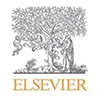Actions That Make a Real Difference in the Fight Against Climate Change
From global finance to the laboratory, hear about two very different ways universities can reduce their carbon emissions.
Citizen science, in which researchers work alongside members of the public to collect or analyze data, brings multiple benefits, extending the capabilities of research teams and aiding public engagement. But there are still skeptics who question its validity as a research model. Find out why concerns are often misplaced and hear some of the ways enthusiastic amateurs have helped advance human knowledge.
On the broader question of public impact, hear how universities could provide a framework that supports academics to carry out more community-engaged research, designed to serve the public good.
On this episode, you will hear from:
Chris Lintott, professor of astrophysics at the University of Oxford, author and co-founder of citizen science platform Zooniverse, and presenter on the BBC’s The Sky at Night programme. He explains how his interest in citizen science was sparked and why he believes it is such an effective model.
Neeli Bendapudi, president of Penn State – Pennsylvania State University – discusses a new coalition of university leaders from across the US and Canada who are working with funders, government agencies and others to develop a road map for future community-engaged, public-impact research.
For more advice on this topic, check out our latest spotlight guide: How to engage the public in research.
This episode is sponsored by Elsevier.

Listen to this podcast on Spotify, Apple podcasts or Google podcasts.
From global finance to the laboratory, hear about two very different ways universities can reduce their carbon emissions.
An expert in student belonging and engagement in the digital environment explains the nuances of belonging, mattering and inclusion as well as how to foster well-being in higher education.
Two academics who are steeped in policy expertise, having worked in government in the UK and US, share practical insights on what works when trying to get research before the eyes of decision-makers.
Hear academic leaders in the UK and Singapore discuss what is needed for effective cross-border collaboration.
4/5 Articles remaining
this month.